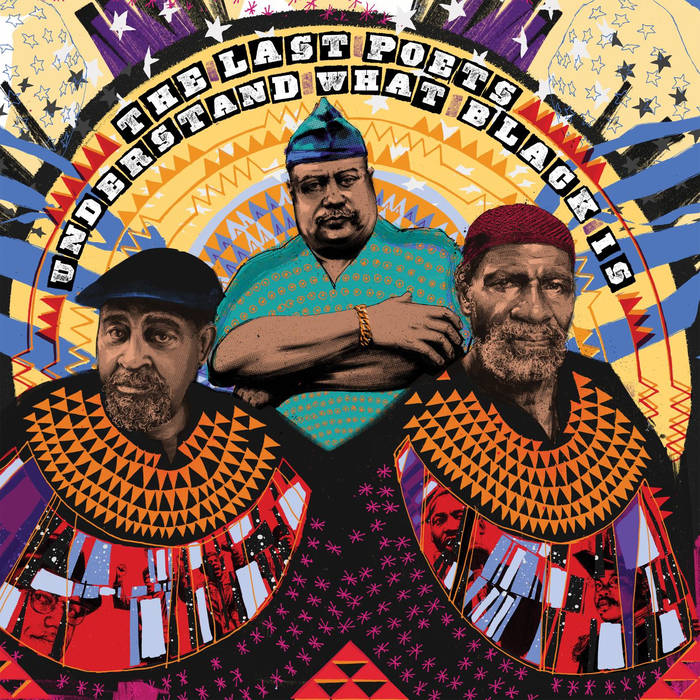The Last Poets - Understand What Black Is
Written by Chi Chi Thalken on May 18, 2018When people look to the history of hip hop and try to find the forefathers of the genre, one group that always comes up are The Last Poets. Formed in Harlem in May of 1968 for an event commemorating Malcolm X’s birthday, the group soon found themselves carving out their own unique artistic space, as they combined spoken word poetry with soul, jazz, and reggae. They continued on in some form or fashion for the next thirty years, finally going on hiatus in 1998. However, after the election of Donald Trump in 2016, Umar bin Hassan and Abiodun Oyewole decided that they could no longer rest on their laurels, and that there was plenty more to say about the African American experience in the U.S. So they got to work writing and recording their first new album in twenty years. The result is an incredibly relevant album released on the 50th anniversary of the group’s formation, Understand What Black Is.
For this album, Hassan and Oyewole turned to London producer Ben Lamdin, aka Nostalgia 77, who has been releasing jazz projects with Tru Thoughts for the last ten years or so. They also brought in another London producer, Mike Pelanconi, aka Prince Fatty, to help round out the sound of the album with his dub and reggae expertise. The best thing I can say about these two producers is that they didn’t try to fix what wasn’t broken. There’s not push to “update” their sound or do anything foolish. The Last Poets made their mark with a very specific sound, and it’s been twenty years since we last heard anything from them, so we don’t need anything all that different from them. We just want a Last Poets record that speaks to today, and that’s exactly what Understand What Back Is is. Lamdin and Pelanconi got some top-notch musicians in the studio to bang out some killer jazz, soul, and reggae grooves, which all sound timeless, and which all set the stage perfectly for the poetry of Hassan and Oyewole to step into the spotlight. As soon as you press play and let the title track unfold, it will feel like these guys never skipped a beat or took any time off. Their voices still sound great, with clear diction, a great feel for phrasing and pacing, and a nice resonance as well. They don’t hold back with their poetry, as they go in on issues of race, class, and politics, but why should they? In theory, this album should have just been a celebration of all the work they did back when they first got started, but in reality, this album exists because The Last Poets looked around a couple of years ago, realized that things weren’t better, and that they could still give a voice to the struggle and help educate and motivate as well as entertain. And so we get powerful songs like “How Many Bullets,” which speaks to the frustration that we haven’t made any progress when it comes to police brutality and gun violence in our country. We get songs like “Rain of Terror,” which forces us to look at how as much as the politicians in the U.S. want to spin things about the “War on Terror,” our foreign and domestic policies have been riddled with oppression and violence, and this isn’t new. And while this album is urgent and critical and angry, it’s not without hope and strength as well. “North East South West” is a great homage to the rich musical history of African Americans. “The Bridge” is about how they are still trying to find a way over, a way out. It all comes together for an incredibly solid and timely album.
Understand What Black Is is the Last Poets album you didn’t know you needed, but now that it’s here, don’t sleep on it. Hassan and Oyewole didn’t get back together to go through the motions or pat themselves on the back. They got back together because things aren’t better, and the fire still burns deep within them. The result is an album that stands up alongside anything else in their catalogue.
| Title: | The Last Poets - Understand What Black Is |
|---|---|
| Label: | Studio Rockers |
| Year: | 2018 |
| Rating: | 9/10 |

